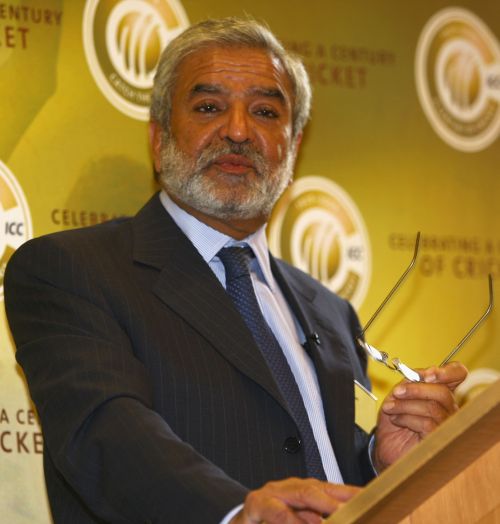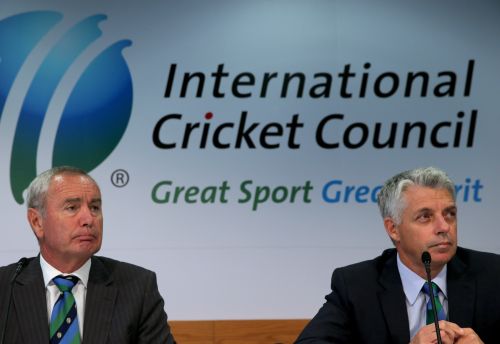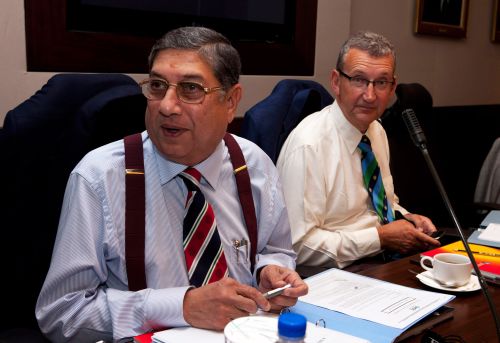
Welcoming the ICC's move to defer a decision on its governance and financial revamp plan, former president Ehsan Mani has insisted on increasing the number of executive committee members from five to seven so that the "the Big 3" do not have a veto on any matter.
The International Cricket Council's executive board postponed its decision on the controversial 'Position Paper', piloted by India (BCCI), England (ECB) and Australia (CA), in the just-concluded meeting in Dubai, even as it proposed the establishment of an Executive Committee (ExCo) and Financial & Commercial Affairs Committee (F&CA) to provide leadership at an operational level, with five members, including BCCI, CA and ECB representatives.
"I think it is the right decision. Every member should be given time to think through the consequences of the proposals contained it the Position Paper; consult with their home board directors and other stakeholders in their countries before making a final decision," Mani, who had initiated the protest against the proposal with a 13-page assessment, told PTI Bhasha from Lahore.
"But I have a number of concerns. Firstly, the proposed ExCo membership of five risks creating further tension down the line. It gives BCCI, ECB and CA effective veto powers over the committee. There should be seven members, two of whom should be independent of the ICC and any member board with expertise in finance and strategy and a good understanding of the game," he added.

The clauses in the proposal paper, if approved by the Executive Board next month, will give the decision-making power to these three countries.
He asked the ICC and the three boards to rethink about the position of Associate and Affiliate members.
"The statement is silent on the fact that the Associate and Affiliate members stand to lose $300 million. These are the countries that need the money most if ICC is committed to protect and grow the game around the world. The money taken from these countries is going to end up in the bank accounts of the three boards who have the least requirement. ICC and these three countries need to re-think this," said the former chief of the world body.
The Pakistan Cricket Board, Cricket South Africa, Bangladesh Cricket Board and Cricket Sri Lanka had opposed the revamp plan.

When asked about the stance of his home board, the PCB, Mani said he is not concerned about any particular country.
"I do not know in detail the stance taken by the four countries. My concerns are not about individual countries, all of whom will look at their self-interests. My concern is about the well-being of the game and the responsibility of the ICC to promote and protect the game," he said.
Regarding consequences of opposing the revamp plan on these boards, he felt nobody can harm their interests if they stick together.
"No one will suffer if they stick together. Any ICC events without these four countries would not be viable in cricketing and financial terms. Cricket cannot afford continuous strife among its members. This will damage the game and ICC's standing in the world," he observed.

Asked about the possibility of N Srinivasan becoming ICC chief, with the CA representative the chairman of ExCo and the ECB representative the head of F&CA, Mani replied: "If that is what the members want and agree to, that is their decision. Whoever becomes the chairman of the two committees must remember that with power comes the responsibility to serve the game, not their own self-interests."